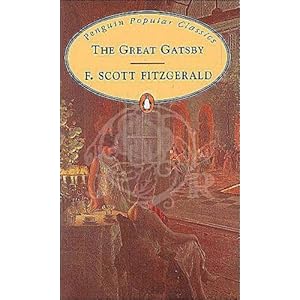I've recently read a couple of books about reading, its influence on us as readers and how it can change us. Having read all my life - I can't remember actually learning to read, and had a career as a librarian, the subject of reading is fascinating to me, the why and how and what people read. Needless to say, the reasons people read are as varied as the people. Stop What You're Doing and Read This is a collection of essays by a number of well-known writers, with a variety of views. Most had been avid readers since childhood, some could even remember learning to read and the approval of adults at achieving this skill. Some articles relate the influence certain books had on the authors' lives, while others discuss and describe the influence of libraries, or of reading more generally. The concluding article poses questions about the influence on our brains of modern technological innovations. Alan Jacobs' The Pleasures of Reading in an Age of Distraction also poses this question, which is , as yet, unanswered. We humans have since time began had a love of stories, and many men who seem to have a problem with reading a physical book are reading all sorts of stories on Kindles, i-pads, tablets and similar reading devices. I bought a Kindle last year, to enable me to take more books away with me than I could cram physical objects in my suitcase, and find that when reading on it, I think I concentrate on the actual text more than I do when reading a physical object book.
Alan Jacobs' book is a more academic work, although not in a particularly academic style. He concentrates on the idea of reading for pleasure, at Whim,as he describes it, so is not a fan of reading lists. A book such as A 1000 books to Read Before You Die is one of his worst nightmares, as he reagrds ploughing through such list as drudgery, and I found myself agreeing vehemently. One of the most disappointing books I have is How To Read and Why, by the critic Harold Bloom. Apart from the few pages of the prologue, this is a list of books, poems and plays you should read and why they should be read. Nothing about reading these for pleasure, although Bloom does give this a mention in his prologue. One of the most useful aspects of libraries is the opportunity they give for serendipitous dipping into books, and chancing on something unexpected but which is intensely interesting., serendipity being another aspect of reading for pleasure which Alan Jacobs recommends.
Tuesday 31 January 2012
Monday 23 January 2012
Past Imperfect

Julian Fellowes second novel Past Imperfect was chosen (by me) as a light read over Christmas for my reading group. But it's not as light a read as its choice for Richard and Judy might appear. The plot concerns a search for the mother of an unknown child, and there are frequent visits to the past to accomplish this. The narrator is commanded by a former friend, Damien, now dying, to find the child he never knew he had, in order to pass on his extremely large fortune. The narrator, whose name is never revelaed, was part of the debutante season of 1968, and invited Damien to meet his fellow debs and debs delights. The story shifts back and forth in time, setting the scene of the past and also bringing us up-to-date with how the sameprople are living their lives now. There are many comparisons with past and present, and also how we change as time goes by. Comments such as " We generally end up with lives that are the products of our choices" and " Anyone with any brains gets nicer as they get older" reveal that the narrator feels this is true of himself as well as others of his acquaintance. His search for Damien;s child returns him to several former female friends, some of whom he knew well, others less so. Some of the reading group felt the above comments and others on life in the 1960'swere a bit too moralising, and that the author went on a bit too much in this vein. Most thought the book as quite a good read. With its constant refernce back to the past of the late1960s, a time when i was growing up myself and finding my own way in the world, I found some aspects of this book made me reflective of my own past.
Friday 20 January 2012

The Great Gatsby by F Scott FitzGerald is regarded as one of the great American novels. First published in 1925, it has probably been in print ever since. As a read, it is a wondrful one, with its beautiful, spare but lyric prose; not a word or phrase is out of place or excessive. The description of both people and places is quite precise; we can almost hear Daisy Buchanan's voice and see Tom Buchanan's physical presence. Despite the fact that none of the characters seemed to be particularly likeable,they were interesting and reading about their lives fascinating. The story of Jay Gatsby and his rise to riches and search for his first love, Daisy, in a society where that was the measure of success is compelling. The emptiness of Daisy's life is soon made apparent- her marriage to wealthy, faithless Tom Buchanan, her almost non-existent relationship with her infant daughter, her friendship with Jordan and also with Nick Carraway, who narrates the tale and is Daisy's cousin. Nick is also the observer of events, but is also the only one who seems to have genuine feelings of compassion for the people that Daisy and Tom damage through their actions. Despiet being strongly of its time, this novel is a modern morality tale as well.
Subscribe to:
Posts (Atom)